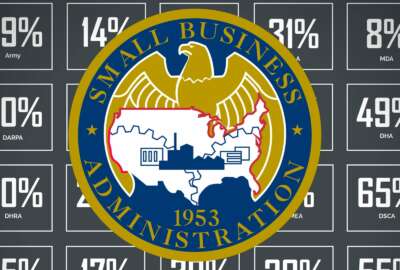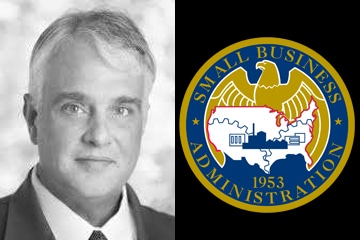
SBA gathering data on shutdown’s impact on small business contractors
Federal contractors affected by the 35-day partial government shutdown won't receive back pay under the spending deal reached by Congress, but the Small Business...
Federal contractors affected by the 35-day partial government shutdown won’t receive back pay under the spending deal reached by Congress, but the Small Business Administration is gathering information on the shutdown’s overall impact on small businesses.
“It’s a pretty big task, but we are certainly reaching out all of those contracting offices to see how we can help,” SBA administrator Linda McMahon told members of the Senate Committee on Small Business and Entrepreneurship on Wednesday.
Earlier this week, Sen. Ben Cardin (D-Md.), the committee’s ranking member, and Rep. Nydia Velazquez (D-N.Y.), the chairwoman of the House Small Business Committee, asked the Government Accountability Office to review the shutdown’s impact on SBA programs and the businesses that rely on them.
“The general impact on our economy was felt by all business, but small businesses don’t have deep pockets, and it was extremely difficult and challenging for them to be able to maintain their workforce,” Cardin said at the hearing.
During the shutdown, SBA furloughed nearly 2,000 employees, about two-thirds of its total workforce, which ground most loan operations to a halt.
Since then, McMahon said the agency has gotten nearly all of its loan application volumes “back to pre-lapse levels.”
All excepted and furloughed SBA employees, she added, received back pay the first week after the shutdown.
Expanding outreach to women, veterans, rural communities
In fiscal 2017, the federal government met its 23 percent small business contracting goal, and for the first time exceeded $100 billion on the value of those contracts. However, it just barely missed its 5 percent prime contracting goal for women-owned small businesses.
“Sometimes we fall a little short of meeting that 5 percent,” McMahon said. “I want to exceed that 5 percent.”
Since 2013, SBA and its private-sector partners have given more than 14,000 women entrepreneurs a crash-course in government contracting through their ChallengeHER program.
But Sen. Mazie Hirono (D-Hawaii) asked McMahon whether women entrepreneurs actually operate in industries that intersect with the federal marketplace.
“A lot of small businesses that I’ve encountered, they work really hard, but I think they do not produce things that the government wants,” Hirono said.
In her response, McMahon said she’s visited several women-owned businesses that serve as a vital part of the supply chain for larger prime government contractors.
“Those women, it is unbelievable how they run and operate their businesses,” she said.
Related Stories

SBA coalition looks to give women-owned businesses better shot at federal contracting market

From 120 hours to 34 minutes, SBA transforms small business application processes
“My office has been hearing from veteran-owned small businesses eager to take advantage of this new program,” Duckworth said.
McMahon said SBA is waiting on GSA to “set the parameters” for the program.
Last summer, SBA signed a memorandum of understanding with the Agriculture Department to help cross-promote the financial programs each agency officers in rural communities. The partnership, McMahon said, helps get the word out about SBA programs through the USDA’s 96,000 employees stationed at field offices.
“What we’re doing is combining our marketing materials, as well as loans that we have [and] loans that USDA has and providing those marketing materials into the marketplace so that more and more of our potential rural business development can see exactly what is available for them,” she said.
SBA looks to serve as cybersecurity ‘role model’
Looking forward, McMahon said SBA should also serve as a cybersecurity “role model” for small businesses to follow.
Sen. Jacky Rosen (D-Nev.) said small business owners often don’t consider themselves targets until it’s too late.
“They don’t have the resources to recover if all that information is gone from them,” Rosen said. “They have valuable information cyber-criminals want,” including credit card information and customer data.
Before reaching out to industry, McMahon said she went through “great strides and great efforts” to ensure its own data was protected.
“We can’t roll exactly what that is to small businesses, but I think making small businesses aware of the threat of cybersecurity, we found, was one of the things that they didn’t ever think about when they were setting up their businesses,” she said.
Since 2001, SBA has partnered with the National Institute of Standards and Technology and the FBI to provide introductory cybersecurity workshops to small businesses.
Copyright © 2025 Federal News Network. All rights reserved. This website is not intended for users located within the European Economic Area.
Jory Heckman is a reporter at Federal News Network covering U.S. Postal Service, IRS, big data and technology issues.
Follow @jheckmanWFED



